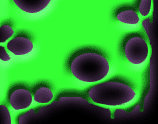|
Newsweek - October 28th, 2002 by Lorraine Ali
Kurt Cobain introduced me to karaoke. In May, 1991, Nirvana was promoting its upcoming
major label debut "Nevermind" - an album that would sell more than 10 million copies, revitalize rock and roll and teach Michael
Jackson, who had an album about to be ejected from the No. 1 spot, the real meaning of the word dangerous. But the scrappy
Seattle trio were still staying in low-budget motels (a step up from sleeping in their tour van) and ordering the cheapest
items on coffee shop menus. Over greasy zucchini sticks at a Holiday Inn Express outside LA, we talked about what it took
to hold onto your punk rock ideals in a very unpunk world. On a small stage in the bar, a busboy was setting up a mic stand,
speakers and a wide-screen TV. I wondered out loud if we were going to hear a bad lounge act. "No, it's worse" Cobain said,
blowing the hair out of his eyes. "It's karaoke." Karaoke? "Yeah, you know when drunk secretaries get up and sing 'Feelings'."
Cobain, the Nirvana frontman who'd go down in history as the angsty, nihilistic voice of the post-boomer generation, had cracked
a joke.
Anyone who thought Cobain was an easy read probably wasn't a Nirvana fan. Next month, however, he'll become an open book,
as Riverhead Books publishes "Journals," a collection of handwritten diary entries, letters, band memos, drawings, screeds
and cries from the heart that editor Julie Grau culled from stacks of the late singer's notebooks. Riverhead is said to have
paid the Cobain estate - i.e., his widow, Courtney Love, and his 10-year-old daughter, Frances - in the neighborhood of $4
million for "Journals." The book is already controversial among some fans, who worry that it's an invasion of Cobain's privacy,
his suicide in April 1994 being tragic, irrefutable evidence of his desire to be left alone. (Love declined to be interviewed
for this story.) "Journals" can be tremendously raw and unsettling, as Cobain spirals from an ambitious kid in a garage band
to a disillusioned pop star with a deadly heroin addiction. The book also illuminates Cobain's sweet, whimsical side. These
contradictions may enhance the way we listen to Nirvana, especially now that the previously unreleased single "You Know You're
Right" tops rock-radio playlists and the band's greatest hits album waits just around the corner.
Not that Nirvana ever sounded anything less than revolutionary. They didn't just make Michael Jackson seem as over as the
'80s, they made a mockery of Skid Row, Poison, the declining Guns N' Roses - and the other rockers with more hair than your
mall-rat sister. It was an unwitting coup by a band who often hit the stage in the clothes they'd slept in. Their songs were
searing and vitriolic, but beneath all the reverb and distortion were perfect pop tunes. Much to Cobain's chagrin, Nirvana
would spawn a movement with a name ("grunge"), paving the way for band's like Pearl Jam and, later, inspiring corporate labels
to take chances on weirdos like Beck. But most important, Nirvana would prove that the best moments in rock are not created
in labs or test-market meetings. They are sloppy mistakes that grow into sonic revelations. "I remember watching Kurt coming
through and thinking, 'God, this music is nuclear", says Bono, of U2. "'This is really splitting the atom.' They raised the
temperature for everybody. Manufactured pop never looked so cold as when that heat was around. Nirvana made everything else
look silly."
After Cobain shot himself, fans camped out in the park next to his lake-side Seattle home, some staying for weeks. Inside
the gates, there was chaos. An ever-changing cast of guards patrolled the property, and a cavalcade of long-lost friends and
distant family members moved in and out of the house at will. It wasn't long before the remnants of Cobain's life began disappearing,
Journals, tapes, equipment. Cobain's grieving friend Eric Erlandson, who played guitar in Love's band, Hole, saw what was
going on and moved to safeguard valuables, including Cobain's notebooks. "From day one I treated the whole situation the way
I would have for any friend - keeping their stuff safe," he says. "But from a historical perspective, I treated it like I
would have treated John Lennon's legacy. I guess I knew even then it was important."
Fans have been awaiting the release of "Journals" for months, some posting breathlessly on websites, others calling the
ever-controversial Love things like "a blood-sucking leech." Nirvana's drummer, Dave Grohl, and its bassist and cofounder,
Krist Novoselic, recently settled a lawsuit with Love over control of the band's legacy. Still, the waters are not entirely
calm. Novoselic preferred not to speak for this story, his band manager Cory Moore saying "He just feels it's wrong to talk
about something this private. He doesn't want to be involved with these diaries on any level." Even Erlandson is ambivalent
about seeing the journals that he saved become public property. "I just pray that the benefits received by the world outweigh
the negativity caused," he says. "But if my journals were made public, I would make sure I was re-born as a thorn in the side
of the perpetrator. That's the least I could do."
There's no way that Cobain intended all these entries to end up on somebody's coffee table. (The 800 number for Nordic
Trac? The recipe for "Mom's Seashell Shrimp Salad"?) But then Cobain never thought he was worth as much as we did. "A lot
of the older generation don't look at him as anything special," says Erlandson. "They don't get it. But future generations
are already looking up to him." Cobain probably would have hated that idea. "Hope I die before I turn into Pete Townshend,"
he wrote in his journal. The tragedy is, he got his wish
|

